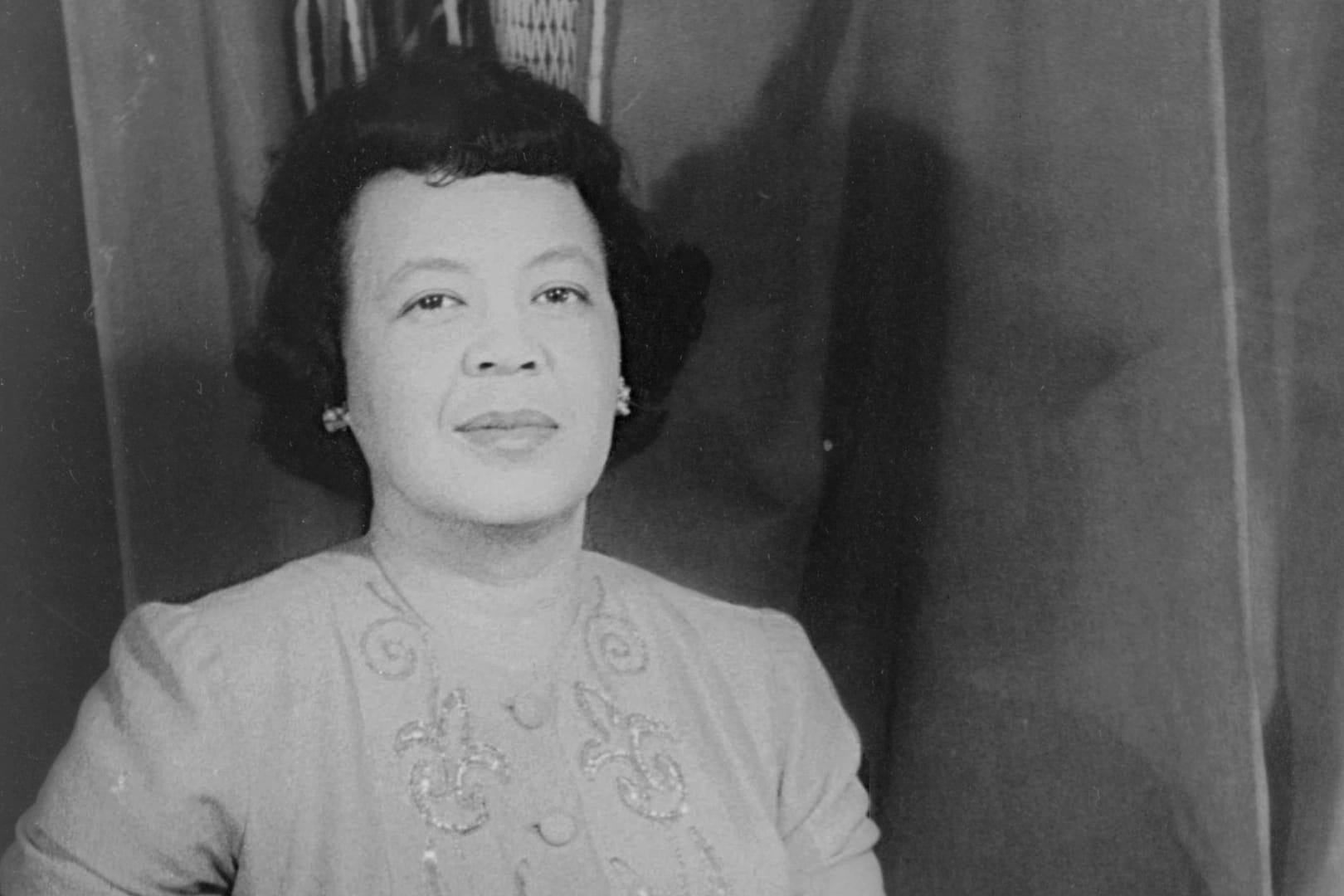
articles / Margaret Bonds
Open Ears: The Endlessly Unfolding Story of Margaret Bonds

About Open Ears: So many people who made invaluable contributions to classical music have been nearly lost to history or are underappreciated in their time. That’s why we started Open Ears, a series of stories about composers, musicians, and conductors who deserve more recognition.
The story of composer and pianist Margaret Bonds is a story that, even though she died 46 years ago this month, is still unfolding. Bonds was born in Chicago in 1913. The daughter of musicians, Bonds’ parents separated when she was just two years old and she was raised by her mother. She wrote her first composition at age five, earned undergraduate and graduate degrees from Northwestern University (although her time there as one of the only Black students was marred by racism and prejudice), and, at age 22, became the first Black soloist to appear with the Chicago Symphony Orchestra.
 Photo by Carl Van Vechten
Photo by Carl Van Vechten
While she experienced success as a performer and composer in the world of classical music, Bonds branched out beyond the confines of the genre. She wrote music for Cab Calloway, the Glenn Miller Orchestra, Louis Armstrong, and Woody Herman as well as radio and television specials. Eventually, late in life, Bonds moved to Los Angeles where she taught at the Los Angeles Inner City Institute and at the Inner City Cultural Center and worked for the movie studios. All the while, she was also writing concert music for orchestra, solo piano, chorus, and art songs. In 1972, her Credo was performed by the LA Phil conducted by Zubin Mehta. Bonds’ lifelong friendship with poet Langston Hughes yielded numerous settings of his poetry, including some of Hughes’ most iconic poems like The Negro Speaks of Rivers and I, Too. Bonds’ daughter, Djane Richardson, referred to Hughes as “Uncle Langston.”
 A telegram from Langston Hughes to Margaret Bonds | Courtesy of Georgetown Library
A telegram from Langston Hughes to Margaret Bonds | Courtesy of Georgetown Library
However, much of Bonds’ music was lost following her death in 1972. According to musicologist Helen Walker-Hill in her book From Spirituals to Symphonies: African-American Women Composers and Their Music, of the more than 200 compositions by Margaret Bonds only 75 scores exist today. Of those 75 scores, only 47 were published during her lifetime. According to Walker-Hill, Bonds did not maintain organized files and she often sent the original copies directly to the individual for whom it was written. Her manuscripts, therefore, are likely scattered all over the country. In one case, an entire box of her scores was found sitting next to a dumpster at a book fair after, apparently, failing to find a buyer.
Bonds died four years before the passage of the Copyright Act of 1976 and without leaving a will. Her only heir, daughter Djane Richardson, died in 2011 without any heirs and also without leaving a will. This has left the copyright status of much of Bonds’ work incredibly murky as it is unclear who, at this point, controls the copyrights, which remain in effect for many more decades. As a result, performances and recordings of her music are, well, complicated. One of Bonds’ largest and perhaps most important works–Montgomery Variations, written in 1965 during the Selma-to-Montgomery Freedom March and dedicated to Dr. Martin Luther King, Jr.–has never been performed. It doesn’t enter the public domain until either 2042, 2060, or 2085, depending on your interpretation of the law.
 A program for Margaret Bonds’s solo piano recital | Courtesy of Georgetown Library
A program for Margaret Bonds’s solo piano recital | Courtesy of Georgetown Library
Fortunately, we do have access to some of Bonds’ music. Her fantasia on the spiritual Wade in the Water, which she titled Troubled Water, has been recorded many times. The piece is in regular rotation on Classical KUSC. Her Christmas cantata, The Ballad of the Brown King, which sets the poetry of Langston Hughes, was performed recently at Georgetown University where Bonds’ archives are kept. Her Easter cantata, Simon Bore the Cross (one of the pieces found in that box by the dumpster), received its world premiere in February 2018 at the Kennedy Center. (Unpaid student musicians performing a free concert help to diminish the copyright complications.)
And so the story of Margaret Bonds continues. 46 years after her death, her music is still a discovery for most audiences. She faced racism every day of her life (at the time she was attending Northwestern University, Black women weren’t allowed in the pool) and she said even more challenging than her experience as a Black woman in the Civil Rights Era was the prejudices she faced as a woman in classical music. In a 1964 interview, Bonds said, “Women are expected to be wives, mothers, and do all the nasty things in the community (Oh, I do them). And if a woman is cursed with having talent too, then she keeps apologizing for it. … It really is a curse, in a way, because instead of working 12 hours a day like other women, you work 24.”
Explore the music of Margaret Bonds with some recommendations below:
Troubled Water: Bonds made several different arrangements of this piece–the original is for solo piano
The Ballad of the Brown King: A good performance here, but for some reason the camera is positioned in the choir, so you only have a view of the conductor. Also, put your YouTube settings on autoplay if you want to hear all nine movements.
You Can Tell the World: This wonderful performance from SongFest at the Colburn School highlights Bonds’ really imaginative writing for the piano.
He’s Got the Whole World in His Hands: Bonds’ arrangement as sung by Leontyne Price. Need I say more?
Spring Will Be So Sad: A song Bonds wrote with Harold Dickinson. Notice the quote of Ravel’s Introduction and Allegro at the beginning.






